Ducks are fascinating creatures. They’re one of the few animals that can fly and swim and are very resourceful in finding food.
However, how much do ducks really cost?
The cost of a duck can vary greatly depending on the breed, age, and where you purchase it from. On average, ducklings can cost between $5 and $15 each. Adult ducks can range from $20 to $50, though rare or exotic breeds can cost much more. Keep in mind, the initial cost of the duck is just the beginning. You’ll also need to factor in costs for food, housing, bedding, and potential veterinary care.
Key Takeaways on Ducks’ Cost
- Total Cost: You can raise ducks for eggs, but it will cost you $10 to $50 per month for food and water and $500 to $1000 upfront or one-time expenses for housing and equipment.
- Duck Ownership Cost: Owning a duck costs as little as $50 per year, but ducks are social animals that require a flock. Therefore, the cost scales with the number of ducks.
- Duck Breeds: The breed of duck greatly affects the cost, purpose, and care requirements. Some breeds are better for meat, others for eggs, while some are bred for a mild temperament.
- Meat Breeds: Pekin, Moulard, Muscovy, and Rouen ducks are excellent breeds for meat production, with varying costs, sizes, and meat qualities.
- Egg-Laying Breeds: Indian Runner Ducks, Khaki Campbell Layers, Welsh Harlequin Layers, and hybrid egg layers are efficient egg producers with diverse egg production rates and breed characteristics.
- Friendly Breeds: Buff Orpington, Cayuga, Rouen, and Pekin ducks are known for their friendly temperament. Each breed has unique plumage and distinct characteristics.
- One-Time Expenses: Initial costs include purchasing the ducks/ducklings, building a brooder for ducklings, and constructing a duck shelter, which can range from inexpensive DIY setups to high-end purchases.
- Long-Term Costs: Duck feeders, waterers, and pens for safe roaming are essential. These costs depend on the region (due to weather factors), flock size, and personal preference for materials.
- Recurring Expenses: Duck feed is the primary recurring expense. One adult duck eats about 2 lbs of food per week. Nesting materials like straw are also needed.
- Veterinary Expenses: While ducks are generally healthy, certain conditions may require a veterinarian’s intervention. Few vets are qualified to see ducks, so it’s essential to budget for potential medical needs.
How Much Do Ducks Cost?
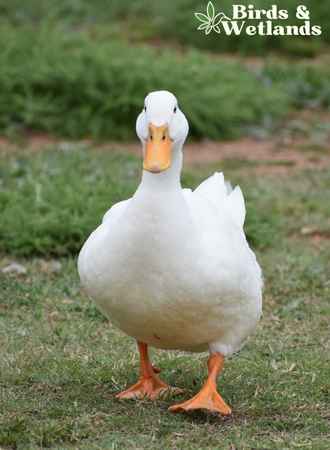
A duck can be a wonderful addition to your yard or garden and is generally fairly simple to care for. The price of a duck varies depending on several factors. Because they are smaller and take up less space, younger ducks are less expensive than adults.
Different duck species can cost more or less. For example, common breeds like the Mallard and Pekin typically sell for around $10-15 per duck, whereas fancy breeds like the Cayuga can cost up to $20 per duck.
| Duck Breed | Estimated Purchase Cost (Per Duck) |
|---|---|
| Mallard | $5 – $10 |
| Pekin | $10 – $20 |
| Khaki Campbell | $5 – $15 |
| Indian Runner | $10 – $25 |
| Muscovy | $10 – $20 |
| Rouen | $5 – $15 |
| Welsh Harlequin | $10 – $20 |
| Call Duck | $20 – $40 |
| Cayuga | $10 – $25 |
| Swedish | $10 – $20 |
While purchasing a duck may not be as expensive as buying other types of animals, such as puppies or kittens, there are certainly additional costs to consider when bringing home a new feathered friend. These costs include necessities like food, shelter, veterinary bills, and equipment for grooming and cleaning up after your new pet.
| Expense Type | Description | Estimated Cost Range (Per Duck/Year) |
|---|---|---|
| Purchase Cost | Cost of buying a duck/duckling | $5 – $30 |
| Brooder Setup | Initial setup for ducklings | $30 – $60 |
| Shelter Construction | Cost of building a duck shelter | $100 – $500 |
| Feeders and Waterers | Essential feeding equipment | $10 – $50 |
| Pen Setup | Cost of setting up a safe roaming area | $50 – $200 |
| Duck Feed | Primary recurring expense | $50 – $100 |
| Nesting Materials | Straw or other suitable materials | $10 – $30 |
| Veterinary Expenses | Cost for potential medical needs | $0 – $200 (based on need) |
How Many Ducks Should You Buy?
There are several factors to consider when deciding how many ducks to purchase.
It is critical to remember that ducks are social animals requiring constant companionship. If you have the space, you should always try to buy two or more ducks.
While it is technically possible to keep only one duck, this can frequently result in various behavioral issues such as depression, anxiety, and aggression.
When fewer ducks are in a group, individuals may receive more attention from caregivers than they require or desire. To keep happy and healthy ducks, you should generally aim to buy at least two ducks rather than just one lonely duckling. Six ducks are the recommended number if you want to raise your flock at a young age.
Of course, the number of ducks you eventually purchase will be determined by the size of your property and other factors such as space constraints or budget constraints. However, the bottom line when it comes to keeping your ducks happy and healthy is: never settle for just one!
How Much Does It Cost to Own a Duck?
Owning a duck can be a fun and rewarding experience, but it does have some costs. The average person will spend $250-300 per year on food and bedding for their duck. This cost will vary depending on several factors, including what your ducks eat and the amount of bedding required.
The size of your flock will affect your yearly expenses; larger communities require more food and bedding than smaller flocks.
Keeping ducks in your backyard can be an inexpensive and enjoyable experience if you plan ahead of time and are prepared to incur some unexpected costs along the way. Of course, having adult ducks has many advantages beyond their economic value — from fresh eggs daily to beautiful companionship; ducks truly have it all.
TRIXIE Pet Products Natura Duck Coop
Are you looking for a reliable, safe, and accommodating living space for your ducks? The TRIXIE Pet Products Natura Duck Coop is the perfect abode that combines function, comfort, and durability, ensuring your ducks enjoy their surroundings.

Pros
- Spacious Design: The TRIXIE Pet Products Natura Duck Coop provides ample space for your ducks to roam and rest comfortably, promoting their well-being and happiness.
- Convenient Cleaning: With a pull-out plastic tray, this duck coop makes cleaning a breeze, helping maintain hygiene without the usual hassles.
- Robust Construction: Made of glazed pine, this coop is built to withstand the elements, ensuring a long-lasting and sturdy home for your ducks.
- Security: The hinged roof with locking arm can be opened from above, providing easy access while also ensuring your ducks’ security against potential predators.
- Easy Assembly: With all necessary hardware included and a detailed instruction guide, setting up your TRIXIE Pet Products Natura Duck Coop is a simple and straightforward process.
Cons
- Size Limitation: While the TRIXIE Pet Products Natura Duck Coop offers ample space, it may not be suitable for a large flock of ducks. Owners with a significant number of ducks may need to consider additional or larger housing options.
- Lack of Insulation: The design of the coop may not provide adequate insulation in extremely cold climates. Additional measures may be necessary to keep your ducks warm during harsh winters.
Are Ducks Expensive and Hard to Keep?
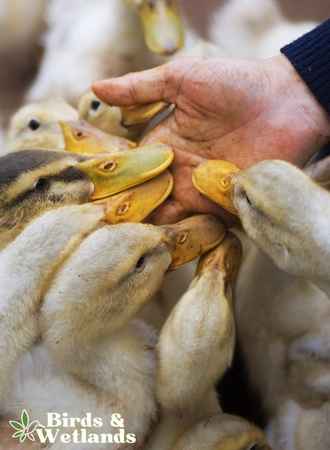
Ducks are a popular choice of pet for many people due to their low cost and relatively simple care requirements. Unlike cats and dogs, which may require frequent grooming or vet visit and can be high-maintenance, ducks require little care or maintenance.
They can survive on a diet of feed grains from your local feed stores and pond water for the most part, but you can supplement this with favorite treats like fresh greens or bugs.
Unlike other pets that may require frequent bathing and brushing, most ducks remain clean due to their waterproof feathers.
The only real maintenance they require is regular cleaning of their living area and occasional nail trimming.
With such simple requirements and a relatively low cost to get started raising your ducks, it’s no surprise that pet ducks are a popular choice for both new and experienced pet owners.
How Much Does It Cost to Feed a Duck?
Regarding duck feeding, there are two major factors to consider: the cost of food and the price of a feeder. On average, most people will spend $30-$40 per month on duck food. The cost varies depending on factors such as the type and quantity of feed purchased from your local feed store and any additional dietary supplements or equipment that may be required.
Because duck food must be fresh and not be left out for more than a few days, recurring costs for bags or containers to store the feed are likely.
Best Overall Duck Feeder -FeatherEase Automatic Chicken Waterer & Feeder
Simplify Your Poultry Care with One Smart Solution!
Enhance your poultry care with the FeatherEase Automatic Chicken Waterer & Feeder, a convenient and efficient solution designed to keep your ducks and chickens well-fed and hydrated.

Pros
- Simplify your poultry care routine: Dual-function design combines an automatic waterer and feeder in one convenient unit.
- Save time and effort: Large feeder and waterer capacities reduce the need for frequent refill.
- Save money: Innovative no-waste feeding system minimizes feed spillage and waste.
- Long lasting: Food-grade, BPA-free materials ensure the safety and health of your poultry, while the durable constructio.
- Easy-to-assemble and maintain design simplifies the process of keeping your poultry hydrated and well-fed.
Cons
- Users with hard water may experience difficulty in separating the inner cup from the main cup of the waterer due to mineral buildup.
- The feeder’s holes may be too large for some users, allowing chickens to scatter food out, which could result in waste.
- The waterer may not function effectively in colder climates, requiring alternative solutions during the winter months.
Duck care is not an expensive endeavor, but it comes with its own expenses and logistical challenges. You can even save money if you find ways to reduce food waste or you can buy duck feed in bulk for a cheaper price. Nonetheless, many people find that the reward of spending time with these magnificent creatures is well worth the effort.
Best Duck Feed Pellets
Are you a duck owner looking for the perfect feed to keep your feathered friends happy and healthy? Look no further than Purina Duck Feed Pellets! With their nutritionally balanced formula and high-quality ingredients, these pellets are the ultimate solution for providing your ducks with the nutrition they need to thrive.
Pros
- Complete Nutrition: Purina Duck Feed Pellets are nutritionally balanced to provide all the essential vitamins and minerals that ducks need to stay healthy and strong.
- Easy to Digest: The pellets are specially formulated to be easy to digest, which makes them ideal for ducks of all ages.
- Promotes Growth and Development: With its balanced nutrition formula, Purina Duck Feed Pellets are designed to support healthy growth and development in ducks.
- Suitable for All Breeds: Whether you have domestic ducks or wild ducks, Purina Duck Feed Pellets are suitable for all breeds of ducks.
- Trusted Quality: Purina has been producing high-quality animal feed for over 100 years, so you can trust that your ducks are getting the best possible nutrition with Purina Duck Feed Pellets.
Cons
- Cost: Compared to other types of duck feed on the market, Purina Duck Feed Pellets can be slightly more expensive. However, many customers feel that the high-quality ingredients and balanced nutrition formula are worth the extra investment.
- Pellet Size: Some customers have noted that the pellet size of Purina Duck Feed Pellets can be quite large, which may not be suitable for smaller or younger ducks. However, many customers have reported that the pellets can easily be broken up or soaked in water to make them easier to eat.
So, if you’re considering bringing ducks or other waterfowl into your home or yard, plan and set aside enough money to care for them properly.
How Much Does a Baby Duck Cost?
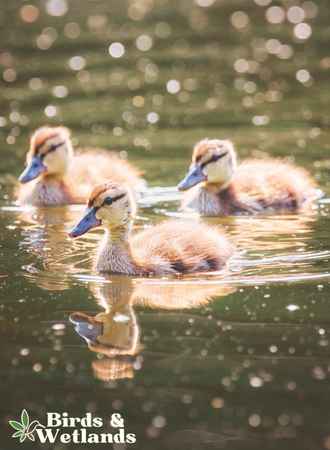
When it comes to purchasing baby ducks, there are numerous factors to consider. In general, the average price of a duckling ranges between $6 and $30, depending on where you shop and what kind of ducks you want.
Larger breeds, such as Muscovy or Pekin, typically cost more than smaller breeds, such as Miniature Call ducks or Mallards. Many stores will not sell individual ducklings, so you’ll almost certainly need to buy at least two at a time to ensure that your young ducklings have someone to keep them company.
Woodlink Cedar Duck Nesting Box
Attract ducks to your wetland area and provide them with a cozy, secure nesting space using the expertly crafted Woodlink Cedar Duck House, made with high-quality materials in the USA.

Pros
- Ornithologically designed: This nesting box is specifically created for ducks, ensuring an optimal environment for them to thrive.
- High-quality materials: Made from re-forested, kiln-dried, inland red cedar, the Woodlink Cedar Duck House is both durable and eco-friendly.
- Easy to install: The nesting box comes fully assembled, with screws included for quick and easy mounting.
- Made in the USA: Take pride in knowing that you are supporting a product that is made domestically, ensuring top-notch quality and craftsmanship.
- Versatile use: While designed specifically for ducks, this nesting box can also be occupied by other species like screech owls, squirrels, and pileated woodpeckers.
Cons
- Mounting height: Users must research and choose the appropriate mounting height (usually 4-6 feet above the ground) and install a baffle on the post to deter predators like raccoons and cats.
- Limited viewing access: Although the front of the box can be opened for viewing, it is important not to disturb nesting birds, which may limit opportunities for observation.
FAQs on Raising Pet Ducks
What Are the Things to Consider Getting a Pet Duck?
There are several factors to consider when purchasing a duck.
First and foremost, you must provide appropriate housing for your duck to ensure its comfort and safety. This could imply building a sturdy duck home or duck house with plenty of room for them to roam and an enclosed area where they can seek shelter if the weather turns bad.
Caring for ducks entails regularly providing adequate food and water. This could include specific duck feed or simply providing access to a nearby pond or lake where they can hunt for their own sources of nutrients.
Another important factor is the brooder and duck equipment, which should be sufficiently heated to keep your ducklings warm during their early development. Your ducks may need feeding and water pots from local stores. Also, keep in mind ducks need a straw for nesting, as other wild birds do.
Most backyard and indoor ducks value nesting boxes (made from wood or cardboard boxes) in which to lay eggs and rest comfortably.
Besides a nesting box, additional expenses may include kiddie pools, duck diapers, a heat lamp or heat light, a brooder box, wood shavings (or pine shavings) and rubber bowls which all can add up to your total cost. Some of these things are more important than others. For example, your ducks, chickens and ducklings need a heat source during cold weather conditions to maintain regular body temperature so providing them with heat lamps
If you also plan to free-range your ducks, you need to build an electric fence to protect your flock from potential predators and other animals.
What Are the Best Duck Breeds for Meat?
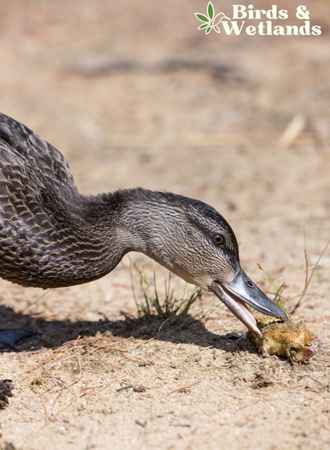
The meat of wild ducks can have a strong gamey taste to it that’s why many people raise their own ducks. There are numerous domestic ducks that are commonly raised for meat. The American Pekin, Muscovy ducks, Rouen ducks, and Aylesbury ducks are among the best breeds. These breeds were chosen for their ability to produce large amounts of meaty and succulent breast meat.
They are hardy and adaptable, making them easy to raise even in less than ideal conditions.
Whether you’re engaging in commercial duck farming to increase your output or a hobbyist looking to try something new, these duck breeds will not disappoint in terms of taste and texture.
What Are the Best Duck Breeds for Eggs?
Ducks come in various breeds, each suited to a specific function, such as egg production, meat production, or general use.
There are several factors to consider when selecting the best duck breeds for eggs. Egg size and color, lifespan, hardiness and adaptability to different climates and environments, ease of maintenance and care requirements, and overall productivity are some of the most important considerations.
The Khaki Campbell is one of the best options for egg size. These ducks lay large, creamy white eggs with strong shells and delicious flavor. They are hardy birds that are well-adapted to various environments.
The Indian Runner Duck is another good option; this breed consistently lays medium-sized white and pastel green eggs throughout its long lifespan. These ducks are very hardy and easy to keep in various environments.
American Pekin and Welsh Harlequin ducks are two other notable duck breeds for egg production. Pekins have firm shells on their medium-sized white eggs and are excellent dual-purpose birds, providing maximum egg yield when hatching chicks and excellent meat quality when raised for slaughter.
Welsh Harlequin ducks several dozen eggs with unusually rich flavor for duck eggs. They may be slower to mature than other breeds in terms of laying their first eggs, but they compensate by producing high yields all year.
Can You Buy a Duck as a Pet?
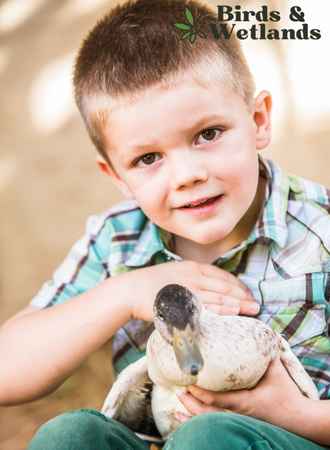
Many people wonder if ducks can be kept as pets. The straightforward answer is yes. Ducks are social creatures that thrive on interaction, both with other ducks and with humans.
At the same time, they are tough creatures requiring little care compared to many other types of pets. They can, for example, tolerate colder temperatures much better than many different animals and, if necessary, find their food by hunting for insects or grazing on vegetation.



